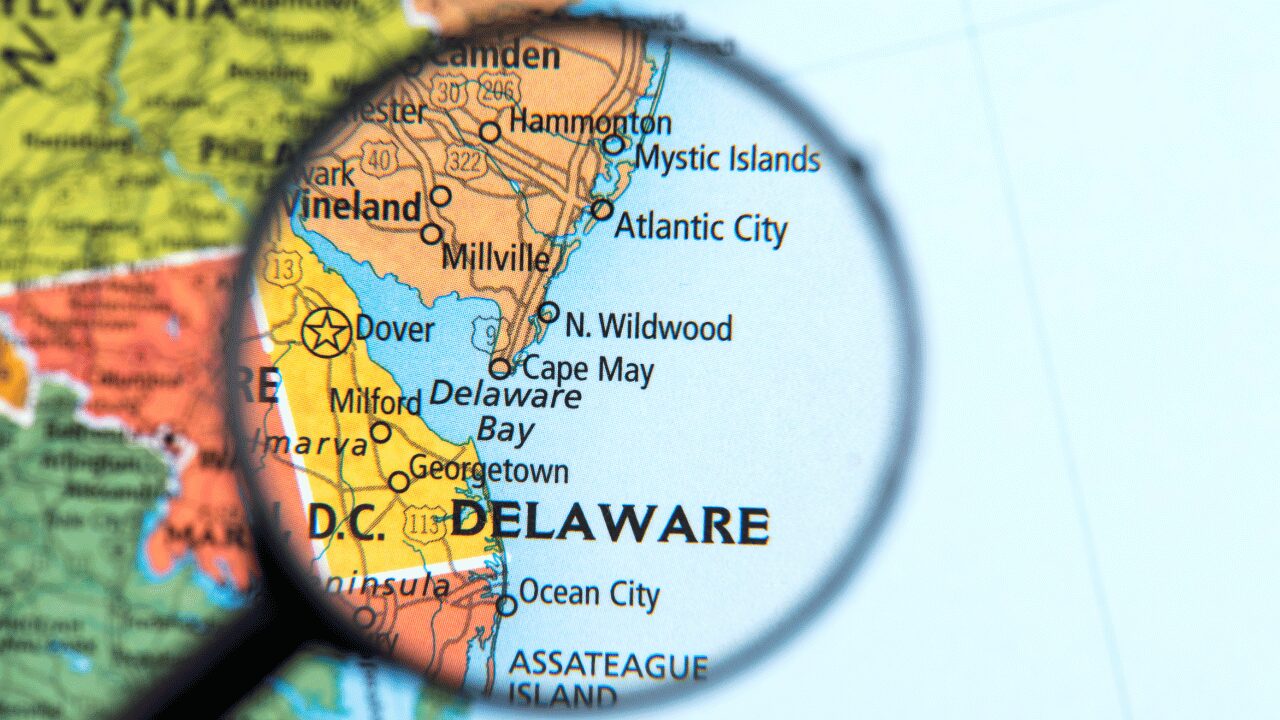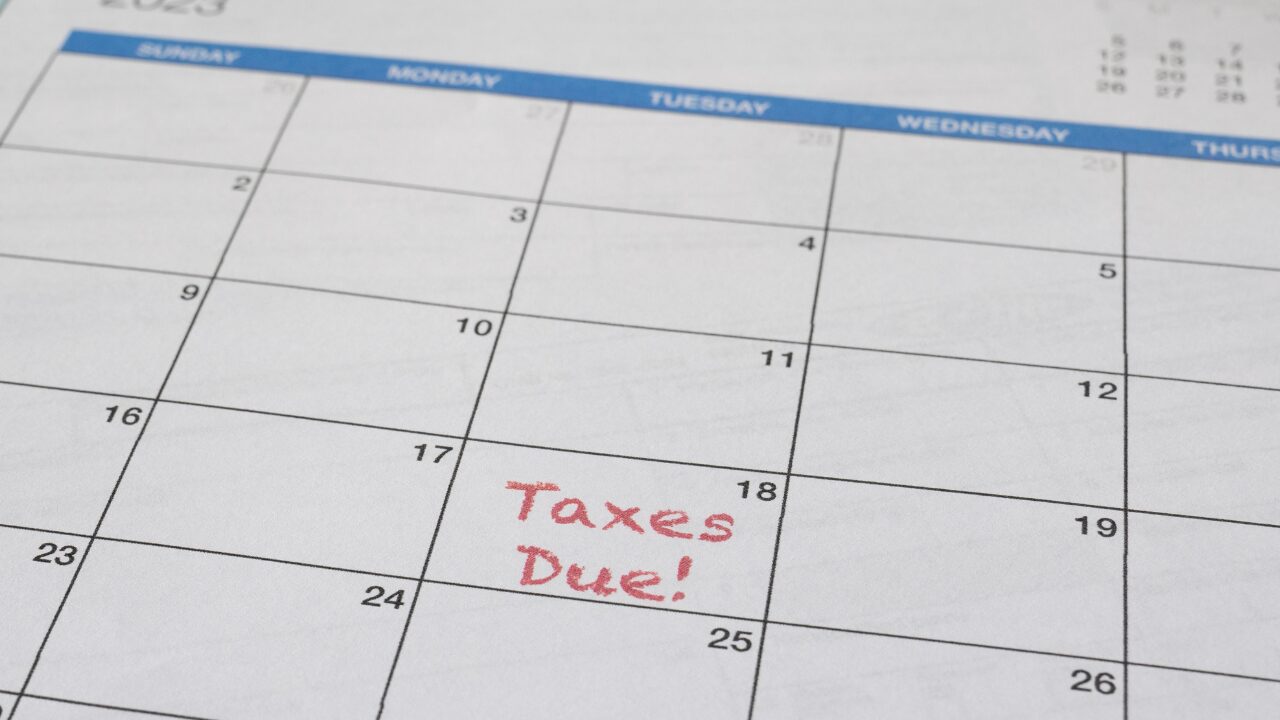Language:
Delaware Franchise Tax: Everything You Need To Know

Delaware is the incorporation capital of the world, with a global reputation. This blog post is crucial if you have a Delaware LLC or a Delaware C-Corporation. Delaware’s secretary of state imposes a franchise tax on all companies registered in their state.
What is Franchise Tax?
Franchise Tax is a fee imposed by the State of Delaware for the right or privilege to own a Delaware company. It is not a tax in reality. It is a fee.
What is the difference between a tax and a fee?
- A tax is usually levied on a % of your profits. If the tax rate is 10% and your net profit is $80,000, the tax is $8,000.
- A fee is a fixed amount to be paid irrespective of your profit. Your revenue could be $0 or $80,000, but the fee remains unchanged.
So, coming back, the state of Delaware uses the fancy word “tax,” but this is a fee. We have used “tax” or “franchise tax” in this blog post to keep the language consistent with the state’s use so you are not confused.
The State of Delaware only requires the tax to keep your business active and in good standing in the state records; it does not affect revenue or business activities.
It is not implied by the term “Franchise Tax” that your US company is a franchise. Regardless of their organization’s revenue, business plan, or organizational structure, all businesses must pay the Delaware Franchise Tax.
How to Calculate Franchise Tax Liability
Delaware LLCs
Delaware is often referred to as DE. For DE LLCs, the franchise tax is fixed at $300 per year, due before June 1 every year.
Delaware C-Corporation
There are two methods that DE C Corporations can use to structure or complete their franchise tax liability.
Method 1 – Authorized Share Method
As the name suggests, this method calculates your franchise tax liability based on the authorized shares.
What are Authorized shares?
The maximum number of shares that can lawfully be distributed to shareholders is known as authorized shares.
Example: If you authorize 10 million shares, you can only issue 10 million shares to your shareholders. You cannot issue more than this number. To issue more than your authorized shares, you need to file an amendment with the state of Delaware first to increase your authorized capital, and then you can issue more shares.
What are Issued shares?
Issued shares are the total number of shares allotted to all company shareholders. This number is always lower or equal to the authorized shares.
Example: You have 10 million authorized shares and issued 7.5 million shares to yourself. You yet have 2.5 million (10 million – 7.5 million) shares available for distribution to new shareholders.
Basics done? Let’s move ahead.
How is Franchise Tax Calculated Using the Authorized Shares Method?

If authorized shares are 5000 or less, you must pay the minimum $175 tax.
- If authorized shares are between 5001 and 10,000 shares, pay $250 tax ($175+$75).
- For every additional 10,000 shares or part thereof, add $85 to the tax total, with a maximum franchise tax of $200,000.
Formula for more than 10,000 shares = $250 + {[(Total Number of Shares – 10,000 shares)/10,000]*$85}
Important note: We have derived this formula to make your calculations easier.
The annual report fee remains the same at $50, but the tax varies between $250 to $200,000 per year, as shown by the below examples.
Example 1
Company X has 5000 shares. In this case, the tax will be flat at $175 and a $50 report fee, so the total tax of $225 is due and payable.
Example 2
Company A has 10 million authorized shares.
Step Wise Calculation:
1. On the first 10,000 shares, $250 is tax applicable.
2. Subtract 10,000 shares to determine the balance number of shares. 10,000,000 shares – 10,000 shares = 9,990,000 shares.
3. Divide 9,990,000 balance shares by 10,000 as per formula (Bullet Point 3 above). 9,990,000 shares / 10,000 shares = 999.
4. Multiply by $85 to determine the tax payable on the balance shares. 999 × $85 = $84,915.
5. Add $250, the rate charged for the first 10,000 shares. $84,915 + $250 = $85,165.
Example 3
Company B has 455,000 authorized shares. I am calculating the franchise tax using the formula in this case.
Franchise Tax Formula for more than 10,000 shares = $250 + {[(Total Number of Shares – 10,000 shares)/10,000]*$85}
Franchise Tax = $250 + {[(455,000- 10,000 shares)/10,000]*$85}
Franchise Tax = $250 + {[(445,000)/10,000]*$85}
Franchise Tax = $250 + {[44.5]*$85}
Franchise Tax = $250 + {[45]*$85}
Franchise Tax = $250 + $3825
Franchise Tax = $4075
Note: As shown above, any number in fractions or points, such as 44.5, will be rounded to the following number, i.e., 45.
Method 2 – Assumed Par Value Capital Method
This method calculates the Franchise Tax based on authorized shares, issued shares, total gross assets, and par value. So, this method has four variables instead of just 1.
How is Franchise Tax Calculated using the Assumed Par Value Method?
1. Assumed Par Value = Divide total gross assets as on the year-end (usually December 31 unless you have selected a different year-end) by the total number of issued shares.
2. Determine which is higher, the Par value or the Assumed Par value.
3. Assumed Par Value Capital = Multiply the number of Authorized Shares by Par value or Assumed Par value, whichever is higher.
4. The franchise tax is $400 for each $1,000,000 of “assumed par value capital.” For calculation purposes, round up to the next million if the assumed par value capital is over $1,000,000.
5. The annual report fee is $50, and the minimum franchise tax payable per this method is $400, so a total of $450.
Example 1
Let’s say your four variables are as follows:
Authorized shares – 1,000,000, Issued shares – 800,000, Total gross assets as of December 31 – $3,200,000 and Par Value – $1
Step Wise Calculation:
1. Assumed Par Value = $3,200,000/800,000 = $4.
2. Par Value ($1) or Assumed Par Value ($4), whichever is higher = $4.
3. Assumed Par Value Capital = $4 * 1,000,000 = $4,000,000.
4. The franchise tax is $400 for each $1,000,000 of “assumed par value capital.”
5. Franchise Tax Payable = $400 * 4 = $1600
6. Add $50 annual report fee and your franchise tax payable is $1600 + $50 = $1650.
Example 2
Let’s say your four variables are as follows:
Authorized shares – 100,000, Issued shares – 80,000, Total gross assets as of December 31 – $0 (online business, so no assets in the US) and Par Value – $1
Step Wise Calculation:
1. Assumed Par Value = 0/80,000 = 0.
2. Par Value ($1) or Assumed Par Value ($0), whichever is higher = $1.
3. Assumed Par Value Capital = $1 * 100,000 = $100,000.
4. The franchise tax is $400 for each $1,000,000 of “assumed par value capital.”
5. Franchise Tax Payable = $400 * 1 = $400.
6. Add a $50 annual report fee, and your franchise tax payable is $400 + $50 = $450.
Example 3
Let’s say your four variables are as follows:
Authorized shares – 10,000,000, Issued shares – 10,000,000 (all shares are issued), Total gross assets as of December 31 – $225,000 and Par value = $0.00001
Step Wise Calculation:
1. Assumed Par Value = $225,000/10,000,000 = $0.0225.
2. Par Value ($0.00001) or Assumed Par Value ($0.0225), whichever is higher = $0.0225
3. Assumed Par Value Capital = $0.0225 * 10,000,000 = $225,000.
4. The franchise tax is $400 for each $1,000,000 of “assumed par value capital.”
5. Franchise Tax Payable = $400 * 1 = $400
6. Add a $50 annual report fee, and your franchise tax payable is $400 + $50 = $450.
Example 4
The par value is the only difference between Example 3 and this one.
Authorized shares – 10,000,000, Issued shares – 10,000,000 (all shares are issued), Total gross assets as of December 31 – $225,000 and Par value = $2
Step Wise Calculation:
1. Assumed Par Value = $225,000/10,000,000 = $0.0225.
2. Par Value ($2) or Assumed Par Value ($0.0225), whichever is higher = $2
3. Assumed Par Value Capital = $2 * 10,000,000 = $20,000,000.
4. The franchise tax is $400 for each $1,000,000 of “assumed par value capital.”
5. Franchise Tax Payable = $400 * 20 = $8000
6. Add a $50 annual report fee, and your franchise tax payable is $8000 + $50 = $8050.
Important note: While calculating your Franchise Tax Liability, you should calculate your franchise tax using the Authorized Share Method and the Assumed Par Value Capital Method and choose whichever is lower to minimize your tax outflow.
Par Value
Par Value per share is the value of each share or each unit as decided by the company’s founders. Delaware law allows for a par value as small as $0.00001, thus making it very easy to start manipulating your company’s share valuation.
You can also choose any par value per share of your choice. You can start your Delaware company with 0 capital as well. There is no minimum capital required in Delaware.
Franchise Tax Due Dates

Delaware LLC
Due date: June 1 every year.
There is no annual report to be filed for an LLC, just the $300 franchise tax payment.
Delaware C-Corporation
Due date: March 1 every year.
The annual report will be filed along with the franchise tax payment as per the Authorized Share Method or the Assumed Par Value Capital Method, whichever is lower.
Example 1
If you incorporate your DE company in 2024, your state compliance will be due in 2025. It is due after the year of registration.
Example 2
If you incorporated your DE company in 2023, your state compliance will be due in 2024.
Example 3
- If you incorporated your DE company on December 31, 2023, you must file your annual report/pay taxes in 2024.
- Suppose you incorporated your DE company on January 1, 2024. In that case, you will have to file your annual report/pay taxes in 2025.
A difference of 1 day in incorporation can save you taxes and compliance for one year.
If the tax is not paid on or before the above due dates, the state imposes a flat $200 late penalty plus a monthly interest of 1.5% for each month of delay.
Corporations owing $5,000.00 or more in franchise tax must make estimated tax payments with 40% due June 1st, 20% due by September 1st, 20% due by December 1, and the remainder due March 1.
Take the Tax Stress Off With doola
Learn more about how doola can help you manage your taxes. We help global founders keep compliant by taking care of the complicated stuff.
Grab a free tax consultation with one of doola’s experts.





